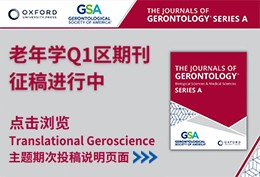-
Much More Than Just Economic: The Political Construction of Agricultural Livestock Trade Associations in Paraguay Latin American Perspectives (IF 0.9) Pub Date : 2025-04-12 Magdalena López
This article analyzes Paraguayan economic elites and the construction of their political practices, based on the study of three livestock agricultural sector business organizations: the Union of Production Trade Associations, the Rural Association of Paraguay, and the Paraguayan Chamber of Exporters and Marketers of Cereals and Oilseeds. The article examines the political profile of the groups, whose
-
Bishop Geisler and the 1934 ‘Torello-Ricci Affair’: fighting for moral authority in a Fascist borderland Modern Italy (IF 0.4) Pub Date : 2025-04-11 Eden K. McLean
In the autumn of 1934, Bishop Johannes Geisler of Brixen/Bressanone denied two Italian-speaking priests, Carlo Torello and Giuseppe Ricci, permission to teach within his predominantly German-speaking diocese. In response, Benito Mussolini threatened to expel all Church representatives from the state education system and, by extension, to unravel the recently signed Lateran Accords. Untangling the motivations
-
A Coalition for Change? Role Orientations in the 12th Parliament of Botswana Journal of Southern African Studies (IF 0.7) Pub Date : 2025-04-05 Anja Osei, Batlang Seabo
Botswana's parliamentary democracy features a weak parliament that is ineffective in law making and executive oversight. Conventional explanations emphasise a dominant party system that emerged following independence, lack of operational independence from the executive, and the poor capacity of parliament as factors that undermine its effectiveness. Using a novel dataset that is based on interviews
-
Introduction: Under-Explored Consequences of the War in Ukraine East European Politics and Societies (IF 0.7) Pub Date : 2025-04-04 Lavinia Stan
-
Regime Change and Alternancia Clientelar: From Monopolistic to Pluralistic Clientelism in Post-Stroessner Paraguay Latin American Perspectives (IF 0.9) Pub Date : 2025-04-01 Gustavo Setrini
Clientelism is a deeply ingrained informal political institution in Paraguay and a source of continuity relative to political reforms and social and demographic changes, particularly democratization and the advent of electoral party alternation. This article examines Paraguay’s post-dictatorial politics (1992-2023), engaging with critical juncture and institutional change theory to analyze continuity
-
Ayoreo Culture Portrayed in New Documentary Apenas el sol (Nothing but the Sun), Directed by UllónArami, Paraguay, 2020. Latin American Perspectives (IF 0.9) Pub Date : 2025-03-26 Sophie M. Lavoie
-
Contributory Social Security in Paraguay: A Political Economy Perspective Latin American Perspectives (IF 0.9) Pub Date : 2025-03-26 Veronica Serafini Geoghegan
Understanding the current situation of Paraguayan contributory social security—particularly, its low coverage, institutional fragmentation, and socioeconomic segmentation—requires considering the role of economic elites in policy implementation. Given the potential effect and influence social protection can have on people’s security, economic autonomy, and income redistribution, this social protection
-
From Opposition to Implementation: Unraveling the Strategy of Technocratic Populist Government’s Appropriation of Opposition Policy Proposals East European Politics and Societies (IF 0.7) Pub Date : 2025-03-26 Ivan Jarabinský
This article examines the appropriation of opposition policy proposals undertaken by the Czech minority governments led by Andrej Babiš and his technocratic populist party, ANO. The article defines policy appropriation and then assesses its theoretical and empirical underpinnings within the broader context of a technocratic populist government. This is followed by a discussion of Babiš’ premierships
-
The Politics of Work: Young Employees’ Awareness of Industrial Relations in Romania’s Call Centres East European Politics and Societies (IF 0.7) Pub Date : 2025-03-26 Maria-Carmen Pantea
The business service sector, of which call centers make up a large share, has emerged as an important driver of growth in central and eastern Europe. This article explores how young employees in call centers in Romania interpret their labor market positioning, how they engage with the structures that shape their working lives, and how they mobilize values to make sense of complex labor processes and
-
The Role of Legitimacy in Shaping Tax Morale: The Case of Hungary East European Politics and Societies (IF 0.7) Pub Date : 2025-03-24 Zsanett Pokornyi, Tamás Barczikay
Building on Margaret Levi’s theory of fiscal contract (1997), this article argues that people are primarily motivated to pay tax by governmental legitimacy. According to Levi, the agreement assumes the provision of collective services which focus on the needs of society; if services respond effectively to public interests, taxpayers reimburse them with their taxes. Put another way, under the fiscal
-
The Nuova Destra in Italy: an investigation between history and historiography Modern Italy (IF 0.4) Pub Date : 2025-03-24 David Bernardini
The aim of this article is to analyse the Italian Nuova Destra. The first part examines the birth of the Nuova Destra within the current of the Movimento Sociale Italiano (MSI), referring particularly to Pino Rauti, a founder and leader. Following the experience of the magazine La Voce della Fogna and the Hobbit Camps, the first publishing initiatives of the Nuova Destra – Diorama letterario and Elementi
-
Fictionalizing the Past in Estonia: Cultural Memory in Women’s Literature East European Politics and Societies (IF 0.7) Pub Date : 2025-03-20 Elena Pavlova, Irina Paert
This article analyzes the way in which traumatic memories of the Soviet past are communicated in Estonian- and Russian-language women’s literature published in Estonia. The representation of the past in these works does not support the claim that the collective memories of Russian and Estonian communities are antagonistic and incapable of “agreeing to disagree.” Focusing on women’s prose written in
-
Demo-Cartographic Imaginaries: Dilemmas of Data, Erasure, and the Threat of Latent Authoritarianism to Indigenous Land Rights in Paraguay Latin American Perspectives (IF 0.9) Pub Date : 2025-03-19 Joel E. Correia
This article assesses the state of Indigenous rights in Paraguay through the year 2022 to show how latent authoritarianism and agrarian oligarchies threaten to roll back ongoing efforts to support the country's democratic transition. Recent civil society efforts to map Indigenous lands and make georeferenced data about those lands free to access online presuppose that greater transparency about the
-
Thirty-five years after Stroessner: Multicracy in Paraguay Latin American Perspectives (IF 0.9) Pub Date : 2025-03-19 Michael Shterenshis
The literature on Paraguay’s political regime labels it as an incomplete or flawed democracy without systematically analyzing how Paraguay is actually governed. The concept of multicracy can describe Paraguay’s political organization and analyze Stroessner’s rule and the post-Stronato period. The governability of Paraguay’s democracy is weak, various kratiae (powers) intervene in policymaking, and
-
Artists and Generals: The Representation of Colonial and National Rule through Street Naming East European Politics and Societies (IF 0.7) Pub Date : 2025-03-19 Ágoston Berecz
The history of multinational East-Central Europe is increasingly viewed through a colonial lens. This article contributes to the ongoing discourse about the applicability of colonial frameworks by looking at the cultural connotations embedded in urban street names by dominant elites. Between the 1860s and 1914, street naming emerged as a tool for demarcating territories, asserting authority, and popularizing
-
A Narrow Path to Victory: Robert Fico, Smer-SD, and the 2023 Elections in Slovakia East European Politics and Societies (IF 0.7) Pub Date : 2025-03-19 Tim Haughton, David Cutts, Marek Rybář
Politicians whose political careers appear finished rarely make successful comebacks. Slovakia’s Robert Fico was propelled back to power when his party, Smer-SD, won the 2023 parliamentary elections and was able to form a coalition government. An election victory for Fico, however, seemed unthinkable in 2018 when he resigned as prime minister amid large-scale protests, and even more unlikely in 2020
-
“We No Longer Only Carry Flowers”: Radicalization Processes Among the Belarusian Opposition-in-Exile East European Politics and Societies (IF 0.7) Pub Date : 2025-03-16 Ekaterina Pierson-Lyzhina
This article explores radicalization processes among the Belarusian opposition-in-exile using resource mobilization theory. Drawing on the case of the post-2020 opposition, exiled in the European Union and recognized by the West as a privileged interlocutor and “legitimate representative of the [Belarusian] people,” it identifies the stages of its radicalization in response to repression in Belarus
-
Gender Differences in Public Issue Salience: Evidence from Czechia East European Politics and Societies (IF 0.7) Pub Date : 2025-03-16 Lucie Bohdalová
This study explores gender differences in public issue salience—the relative importance that men and women place on various public issues—focusing on how assets like wealth, education, and marketable skills shape these priorities within the Czech social context. This study is rooted in Iversen and Soskice’s theory of assets as well as in the Iversen and Rosenbluth’s theory of political preferences
-
State Capture and Elite Resistance to the Sustainable Development Goals in Paraguay Latin American Perspectives (IF 0.9) Pub Date : 2025-03-15 Andrew Nickson, Peter Lambert
This article examines Paraguay’s lack of progress in meeting the UN Agenda 2030 Sustainable Development Goals (SDGs) through the conceptual framework of state capture. It argues that the current model of economic development, based primarily on soya and meat production, is unsustainable in economic, social, and environmental terms and almost exclusively serves the interests of a small elite. The example
-
Seed Geographies as Body Politics in Paraguay Latin American Perspectives (IF 0.9) Pub Date : 2025-03-15 Jamie C. Gagliano
As the weight of the agro-industrial model of agriculture becomes abundantly evident, the role of seeds inserted into either capitalist or agroecological production models has become a central way that scholars and activists conceptualize food sovereignty struggles. This is no less the case in Paraguay, where peasant and Indigenous movements like CONAMURI articulate that having seeds is a political
-
In Memoriam: Hobart A. Spalding Jr.: 1936-2025 Latin American Perspectives (IF 0.9) Pub Date : 2025-03-13 Steve Ellner
-
The end of fascism? Modern Italy (IF 0.4) Pub Date : 2025-03-12 Rosario Forlenza
When did fascism end? Did it end in July 1943, with the fall of Mussolini from power, or in April 1945, with Liberation Day? The argument of this article is that fascism was not simply a historical experience but a political form that attempted to transcend Italy’s social and political fractures with fantasies and unrealistic but nevertheless captivating expectations. Its hypnotic contagious power
-
Soldiers in parliament: Military power and legislative authority in Uganda African Affairs (IF 2.2) Pub Date : 2025-03-08 Gerald Bareebe, Christopher Day
The Ugandan military has played an outsized role in Uganda’s national politics for decades. Since 1995, the Constitution of Uganda has allocated 10 seats in the Ugandan Parliament to members of the national army, the Uganda People’s Defence Forces (UPDF), which is considered one of several ‘interest groups’ represented in the legislature. The unusual arrangement of including soldiers in parliament
-
Legislative Turnover in Latin America: Introducing a New Dataset and Analyzing Its Temporal Dynamics Latin American Politics and Society (IF 1.7) Pub Date : 2025-03-07 Karel Kouba, Michael Weiss
The article examines the patterns of turnover of Latin American legislators. It contributes (1) by introducing a large original dataset of turnover rates in 204 elections between 1985 and 2023 based on manually coded lists of all Latin American legislators elected since 1985, (2) by describing the cross-national and temporal patterns of turnover in Latin America, and (3) by examining empirically the
-
The Right and the Politics of Labor Informality Enforcement Latin American Politics and Society (IF 1.7) Pub Date : 2025-03-07 Xabier Gainza, Andrés Espejo, Felipe Livert
The enforcement of labor informality is subject to electoral motivations, and political parties on the left and right have different incentives to do so. While leftist governments are more lenient not to harm their informal electorate, right-wing incumbents face an electoral dilemma: the part of its constituency that benefits from informal work is in favor of a permissive attitude, but another section
-
‘A symbol of French colonialism’: The Brazza Memorial and contested colonial memory in Congo African Affairs (IF 2.2) Pub Date : 2025-03-06 Moudwe Daga
In 2006, the government of Congo built a $10 million glass and marble mausoleum to house the remains and to celebrate the legacies of the French colonizer, Pierre Savorgnan de Brazza. This extravagant commemoration sits uncomfortably alongside global calls for the removal of memorials celebrating colonial figures. This article analyses how ordinary people construct their own narratives to contest colonial
-
The Ambivalent Relationship between South America and the Liberal International Order: Regional Counter-institutionalization in the Fields of Migration and Election Monitoring Latin American Politics and Society (IF 1.7) Pub Date : 2025-03-05 Giovanni Agostinis, Leiza Brumat
Under what conditions do South American states create regional institutions that consolidate or undermine the liberal international order (LIO)? To address this question, we compare two cases of contestation of the LIO through counter-institutionalization in the domains of migration and election monitoring, both of which are closely related to the LIO’s core political principles. We argue that the
-
The ‘villa in the jungle’ nuclear paradigm: Israel’s nuclear narrative and practice in a changing regional security complex Middle Eastern Studies (IF 0.5) Pub Date : 2025-03-04 Ludovica Castelli
The 'villa in the jungle' metaphor, conventionally associated with Israel's former Defence Minister Ehud Barak, is one of the most referenced metaphors in Israeli political discourse. Its perpetuation has contributed to the fixation of two co-constitutive collective identities: Israel as an exemplary democratic society amidst a violent and backward Arab neighbourhood. This article examines an often-overlooked
-
-
Dependent Neoliberalism, US Aid and Central American Asylum Seekers Latin American Perspectives (IF 0.9) Pub Date : 2025-02-27 Alfonso Gonzales Toribio
This article is about Central American asylum seekers from the perspective of dependency theory and Gramscian international relations. It argues that Northern Central American asylum seekers are fleeing the contradictions of the hegemonic US-led neoliberal development model that depends on migration and remittances as its main source of hard currency. This article is grounded in structural/conjectural
-
Spatial Strategies of US-Mexico Border Control and the Situation of Central American Asylum Seekers Waiting in Mexico Latin American Perspectives (IF 0.9) Pub Date : 2025-02-27 Joseph Wiltberger
The US recently implemented novel spatial strategies of border control that repel asylum seekers to Mexico, forcing them to await the opportunity to request asylum or asylum proceedings. The turning back and expulsion of asylum seekers at the US-Mexico border transforms northern Mexican border cities into spaces of extraterritorial containment where asylum seekers form informal migrant camps and face
-
Refugee Policies and Border Regime in Southern Mexico Latin American Perspectives (IF 0.9) Pub Date : 2025-02-25 María Dolores París Pombo
Based on a critical geopolitical analysis, this paper addresses the convergence of refugee policies and migration control policies in southern Mexico within the framework of border externalization and internalization. I posit that the border process in this region responds to both political and military interests espoused by the U.S. as well as Mexican governments. The refugee system is a device though
-
Welcome Refugees? The Asylum System in Spain Latin American Perspectives (IF 0.9) Pub Date : 2025-02-25 Juan Iglesias, Rut Bermejo
The Spanish asylum system and refugee reception program demonstrate persistent problems involving initial access to asylum and the processing of applications; access to assistance from the reception system; and the process of integration of asylum seekers, which is characterized by social segregation. This article analyzes these issues and seeks to explain them by looking beyond the immediate circumstances
-
‘Beyond Paisans’: Italian-American service members and the Allied liberation of Italy Modern Italy (IF 0.4) Pub Date : 2025-02-25 Francesco Fusi
During the Second World War, hundreds of thousands of American soldiers of Italian origin were drafted into the US military and sent to fight overseas against the Axis powers. For many, this was an opportunity to demonstrate their loyalty to the country and remove suspicions raised by Italian communities’ ties with the Fascist regime. The prospect of fighting in their homeland aroused mixed feelings
-
Latin Americans Confront the Dynamic Essence of Asylum: The More Things Change, the More they Stay the Same Latin American Perspectives (IF 0.9) Pub Date : 2025-02-24 Sarah England, Alfonso Gonzales Toribio
-
Honduras, Gangs, and Asylum Law Latin American Perspectives (IF 0.9) Pub Date : 2025-02-24 Amelia Frank-Vitale, Jesse Hoffnung-Garskof
Decision-makers within the US immigration system have long looked skeptically on asylum claims based on persecution by street gangs. We draw on ethnographic research conducted in San Pedro Sula, Honduras to argue that this skepticism and the corresponding legal precedents rely on an incorrect understanding of the issues at stake. Our evidence, considered in light of recent scholarship on violence in
-
Racialized Dispossession and the Third Exile Honduran Garifuna Asylum Seekers Latin American Perspectives (IF 0.9) Pub Date : 2025-02-19 Sarah England
Over the last decade Honduran Garifuna have increasingly appeared among the millions of Central Americans arriving at the US/Mexico border to claim asylum. This is striking because unlike other Hondurans, Garifuna have a long history of largely documented US-bound migration. Recently, however, they have been transformed from transnational migrants into asylum seekers by being caught between “accumulation
-
“Asylum, it’s not a real thing anymore:” Paralegal and Temporal Modalities for Excluding U.S. Asylum Seekers from Latin America and the Caribbean Latin American Perspectives (IF 0.9) Pub Date : 2025-02-17 Alisa Garni, Citlally Orozco, Lisa Melander
Governments deny people’s internationally recognized rights to asylum by preventing them from arriving in territories where they may request asylum and by using case law to restrict eligibility. While research tends to focus on either deflection or restriction tactics, this paper builds on studies that examine the interaction between them. To further examine the interaction between these “bordering”
-
The Economic Determinants of Venezuela’s Hunger Crisis Latin American Perspectives (IF 0.9) Pub Date : 2025-02-17 Francisco Rodríguez
This paper argues that Venezuela’s hunger crisis was caused by the collapse of the country’s import capacity. Evidence is presented to support the hypothesis that the key driver of the decrease in caloric intake was the decline of more than nine-tenths in oil revenues, which sparked an economic contraction and forced the economy to undertake massive cuts in imports of food and agricultural inputs.
-
The Limits and Possibilities of Asylum: Lessons from Expert Witnessing and Volunteering at a Shelter Latin American Perspectives (IF 0.9) Pub Date : 2025-02-17 Lynn Stephen
Working as a researcher, expert witness, and refugee shelter worker quickly raises questions of whether such engagements are reinforcing institutions and structures of power that reproduce racism, economic and social inequality, militarization of our borders, and foreign and immigration policies of violence and exclusion. At the same time, engaged methods of research inside institutions such as U.S
-
Inability to Protect: Mexican State Capacity and Expert Witnessing in United States Asylum Claims Latin American Perspectives (IF 0.9) Pub Date : 2025-02-17 Mneesha Gellman
This article focuses on how the Mexican state remains unable to protect certain categories of people based on particular identity characteristics. I draw on examples of gang-related corruption within the police and the judiciary, as well as the impact of cultures of violence and impunity on vulnerable categories of citizens, especially women and girls. I also explain some of what expert witnesses can
-
‘Lots of red, but also lots of tricolour’: the liberation of Milan and the Liberal Party in the Minoletti–Quarello papers (April 1945) Modern Italy (IF 0.4) Pub Date : 2025-02-13 Rossella Pace
This article uses the hitherto partially unpublished diary of Virginia Minoletti Quarello and her husband Bruno Minoletti to shed a light on the Resistance and on the transformation of Italian politics after the war from an original angle. Virgina and Bruno, members of the Italian Liberal Party, played a central role in the Resistance and in consolidating the network of the Liberal partisans led by
-
The ‘swastika epidemic’ of 1960 and the first major public debate about antisemitism in republican Italy Modern Italy (IF 0.4) Pub Date : 2025-02-13 Enrico Palumbo
In December 1959, several episodes of antisemitism occurred in West Germany. These events spread rapidly to other countries and were dubbed by newspapers the ‘swastika epidemic’. In Italy, the episodes sparked intense debate among the main political forces of the time, framing the interpretation of antisemitic episodes within a context that considered the comparison between the two countries, while
-
‘Fascism on trial’: Rodolfo Graziani and the manipulation of historical consciousness in postwar Italy Modern Italy (IF 0.4) Pub Date : 2025-02-03 Victoria Witkowski
This article uses the postwar trial of Fascist Italy’s most prominent general, Rodolfo Graziani, to examine issues of transitional justice and the formation of popular memory of Italian Fascism and colonialism after 1945. During the Fascist ventennio, the regime constructed Graziani as the nation’s colonial ‘hero’ despite his leading role in genocidal measures during Fascist Italy’s colonial wars in
-
Platens from the Past: Yugonostalgia and the UNIS-tbm Typewriter East European Politics and Societies (IF 0.7) Pub Date : 2025-01-29 Kristen R. Ghodsee
This article explores the lost history of the Olympia Traveller and Traveller de Luxe typewriters. Designed in Germany but manufactured in a once multiethnic town called Bugojno in the Republic of Bosnia and Herzegovina as part of a thriving Yugoslav typewriter industry, these machines were once exported to all corners of the globe with more than ninety different keyboards. Sold throughout Yugoslavia
-
Italian vermouth on the international market (1890–1960): a success story Modern Italy (IF 0.4) Pub Date : 2025-01-23 Omar Mazzotti, Luciano Maffi, Stefano Magagnoli
This article examines the causes and geographical trajectories of the globalisation of vermouth, one of the most famous Made in Italy products in the world. Of all the fortified wines, vermouth stands out for its unique history. Originally a product of Piedmont consumed mainly by the aristocracy and the emerging bourgeoisie, vermouth became the subject of a growing export trade between the nineteenth
-
The Forgotten Resistance of the Sinti and Roma Modern Italy (IF 0.4) Pub Date : 2025-01-22 Chiara Nencioni
The role that Roma communities played in the Resistance during the Second World War is a little-known part of history, especially in Italy. Through consideration of their involvement, we can highlight the complexity of the Resistance, and recognise Roma communities as an integral part of Italian society. Roma involvement in the Resistance had distinctive characteristics compared to that of the gagi
-
Old woods, new rule: the annexation of Veneto to the Kingdom of Italy from a forest history perspective Modern Italy (IF 0.4) Pub Date : 2025-01-22 Giacomo Bonan
This paper analyses the period following the annexation of Veneto to the Kingdom of Italy in 1866 from the standpoint of forest history. Recent historiography has demonstrated that the development of scientific forestry was a crucial factor in the state-building process. Post-unification Veneto provides an opportunity to explore these dynamics from a decentralised perspective, focusing on two critical
-
The political drivers of antipoverty policy in Italy: persistence, change and reversals Modern Italy (IF 0.4) Pub Date : 2025-01-22 Rosa Mulè, Stefano Toso
This article analyses the political determinants of antipoverty policy in Italy between 1948 and 2022, providing a long-term analysis of the Italian minimum income scheme. We look for an explanation of that evolution drawing on three theoretical perspectives: veto players, gradual institutional change, and party competition. Our methodology is process tracing which involves the examination of ‘diagnostic’
-
Shaped by censoring attitudes: pornography in late nineteenth- and early twentieth-century Italy Modern Italy (IF 0.4) Pub Date : 2025-01-22 Claudio Monopoli
Through an analysis of the Italian context, this article illustrates how censoring attitudes shaped the modern meaning of pornography between the last two decades of the nineteenth century and the years of the Great War. The difference between the ideas of pornography and obscenity is pointed out through a concise examination of censorship archive documents from the Lombardo-Venetian Kingdom, the State
-
‘Brigantaggio’ revisited: historiographical experiences and prospects for research Modern Italy (IF 0.4) Pub Date : 2025-01-20 Carmine Pinto, Gian Luca Fruci
This article describes the results of the Progetto di ricerca di interesse nazionale (Research Project of National Interest [PRIN]) ‘Il brigantaggio rivisitato’ (‘“Brigantaggio” Revisited’), which investigated the practices and imagery of brigandage (and the fight against it) in modern and contemporary Italy from a Euro-Atlantic perspective. A large community of scholars, both within Italy and further
-
Migrations, citizenship and administrative borders: the Italian case Modern Italy (IF 0.4) Pub Date : 2025-01-20 Lucie Bargel, Carlo Caprioglio, Enrico Gargiulo, Daniela Trucco
This contribution summarises the scientific discussions that developed during a one-year cycle of international and interdisciplinary seminars focusing on the relationship between migration and citizenship in Italy. We considered human mobilities in their relation to the politico-administrative institutions of the state and observed the latter's attempt to define and govern them. The relative marginality
-
Aerolíneas Argentinas Cabin Crew Experiences and Meanings of Work in the Pandemic Latin American Perspectives (IF 0.9) Pub Date : 2025-01-13 Agustina Miguel, Sara Cufré
This article analyzes the experience and construction of meaning by the all-women cabin crews of Aerolíneas Argentinas working through the pandemic during the suspension of commercial operations in 2020. Our study is centered around three themes: the (re)organization of schedules, job uncertainty, and changes in duties. These transformations in the work process generated an increase in the physical
-
Rethinking ‘farmer–herder’ conflicts in the Ivorian internal frontier African Affairs (IF 2.2) Pub Date : 2025-01-11 Jeremy Allouche, Cyprien Yao Yao, Kando Soumahoro Amédée
There is a heightened concern among the media, United Nations (UN) agencies, and security experts about the rising number of localized conflicts in West Africa. While many of these conflicts are labelled as farmer–herder conflicts, they are, in fact, more complex and multidimensional. This article demonstrates as much for the Ivorian case by building on the concept of the internal frontier in West
-
Introduction COVID-19 Coronavirus: Pandemic Politics in Latin America and Precarity and Health: Health as Asset, Health as Right Latin American Perspectives (IF 0.9) Pub Date : 2025-01-11 Tomás Crowder-Taraborrelli, Alexander Scott, Kristi M. Wilson, Marina Gold
-
Autonomous Strategies of Migrant Resistance to the Pandemic’s Repercussions Latin American Perspectives (IF 0.9) Pub Date : 2025-01-10 Nanette Liberona Concha, Marioly Corona Ramírez, Cristián Doña-Reveco
This article addresses the economic and political repercussions of the pandemic on the migrant populations in Iquique, Chile, comparing the experiences of Bolivian and Venezuelan migrants. We assess the forms of resistance they developed to survive the economic, social, and health crises associated with the COVID-19 Pandemic, which each group confronted in a different manner. We approached this from
-
Colombia, COVID-19, and the Colonial Trap Reflections on the Politics of Knowledge Production Latin American Perspectives (IF 0.9) Pub Date : 2025-01-10 Bill Rolston, Fionnuala Ní Aoláin, Claire Wright
The COVID-19 pandemic has made historical and contemporary colonial relationships between and within states more fraught. This complexity is apparent within the research process itself, adding a new dimension to debates on positionality and the politics of knowledge production. Drawing on critical approaches to International Relations, and in dialogue with an emerging literature on the implications
-
Public Manifestos: Brazilian Civil Society Alliances and Resistances in the Face of the Covid-19 Crisis Latin American Perspectives (IF 0.9) Pub Date : 2025-01-10 Adriana Cattai Pismel, Ana Claudia Chaves Teixeira
This article analyzes the public manifestos made among civil society during the first wave of Covid-19 in Brazil. Data collection took place between April and August 2020, and gathered a sample made up of documents in various formats, which were drawn up by a wide range of actors who voice very different ideas and themes. The data analysis allowed us to identify three important shifts: these actors
-
Gore Capitalism and Necropolitics in Brazil’s Malgovernance of the COVID-19 Pandemic Latin American Perspectives (IF 0.9) Pub Date : 2025-01-09 Mairon G. Bastos Lima, Katerina Hatzikidi, Karen da Costa
The COVID-19 pandemic caused massive human suffering just as much as it heightened pre-existing socio-economic and political issues. Brazil, where over 700,000 people perished, offers one of the starkest cases as Black and Indigenous lives were particularly neglected through a hands-off approach. While commonly characterized as mismanagement, we argue that the Bolsonaro administration’s strategy instead
-
International Teleworking in Latin America Latin American Perspectives (IF 0.9) Pub Date : 2025-01-09 Marina Kabat
Desde la pandemia, América Latina experimentó un drástico crecimiento del número de trabajadores que se emplean en forma remota para empresas extranjeras. No obstante, los mismos cambios que facilitaron esta expansión del teletrabajo internacional aceleran la competencia global entre trabajadores, lo que junto con la crisis que atraviesa la industria del software, genera despidos y caída salarial.















 京公网安备 11010802027423号
京公网安备 11010802027423号